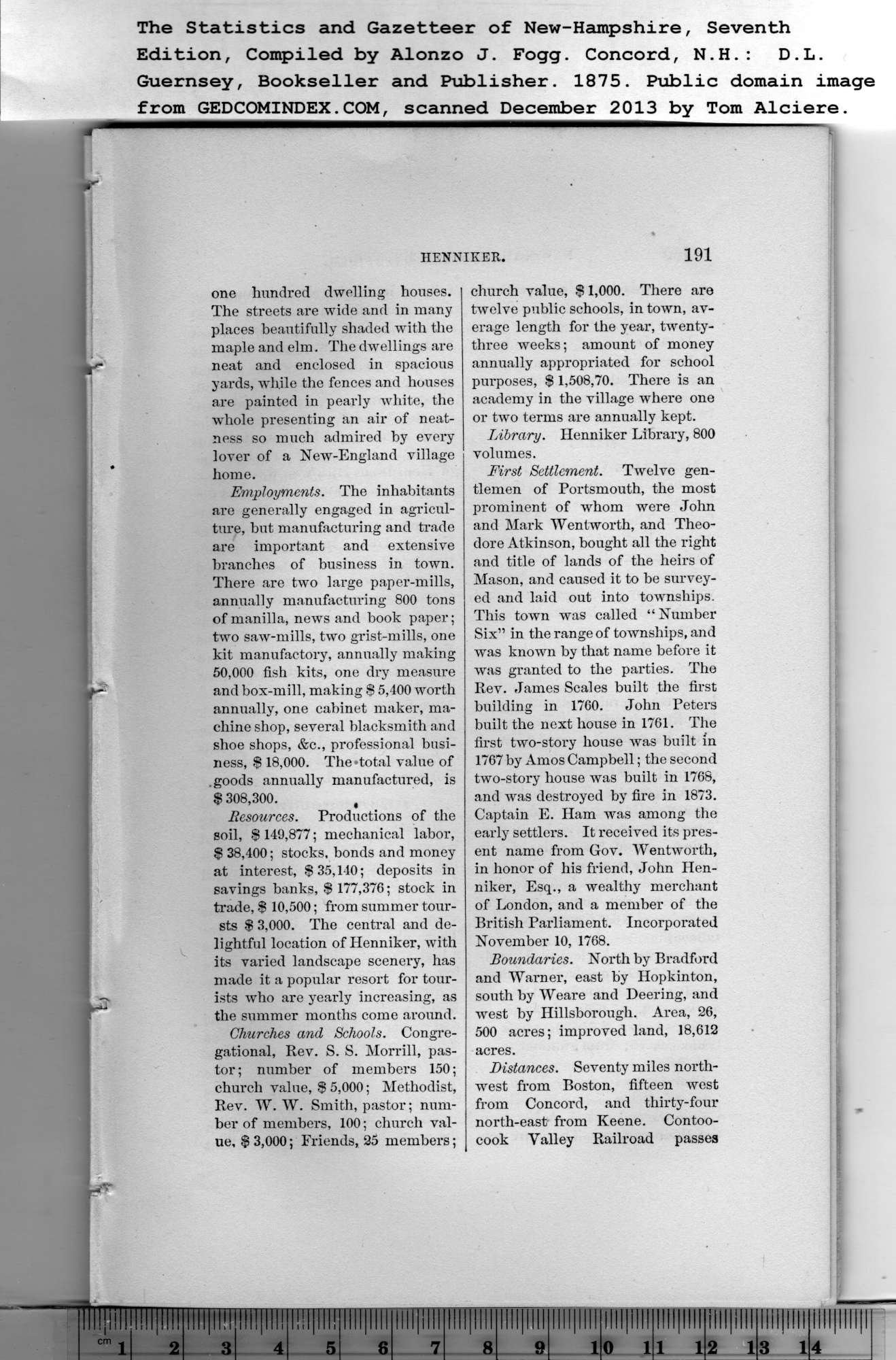|
one hundred dwelling houses.
The streets are wide and in many
places beautifully shaded with the
maple and elm. The dwellings are
neat and enclosed in spacious
yards, while the fences and houses
are painted in pearly white, the
whole presenting an air of neat-
ness so much admired by every
lover of a New-England village
home.
Employments. The inhabitants
are generally engaged in agricul-
ture, but manufacturing and trade
are important and extensive
branches of business in town.
There are two large paper-mills,
annually manufacturing 800 tons
of manilla, news and book paper;
two saw-mills, two grist-mills, one
kit manufactory, annually making
50,000 fish kits, one dry measure
and box-mill, making $ 5,400 worth
annually, one cabinet maker, ma-
chine shop, several blacksmith and
shoe shops, &c., professional busi-
ness, $ 18,000. The »total value of
.goods annually manufactured, is
$ 308,300. t
Resources. Productions of the
soil, $ 149,877; mechanical labor,
$ 38,400; stocks, bonds and money
at interest, $ 35,140; deposits in
savings banks, $ 177,376; stock in
trade, $ 10,500; from summer tour-
sts $ 3,000. The central and de-
lightful location of Henniker, with
its varied landscape scenery, has
made it a popular resort for tour-
ists who are yearly increasing, as
the summer months come around.
Churches and Schools. Congre-
gational, Rev. S. S. Morrill, pas-
tor; number of members 150;
church value, $ 5,000; Methodist,
Rev. W. W. Smith, pastor; num-
ber of members, 100; church val-
ue, $ 3,000; Friends, 25 members; |
191
church value, $ 1,000. There are
twelve public schools, in town, av-
erage length for the year, twenty-
three weeks; amount of money
annually appropriated for school
purposes, $ 1,508,70. There is an
academy in the village where one
or two terms are annually kept.
Library. Henniker Library, 800
volumes.
First Settlement. Twelve gen-
tlemen of Portsmouth, the most
prominent of whom were John
and Mark Wentworth, and Theo-
dore Atkinson, bought all the right
and title of lands of the heirs of
Mason, and caused it to be survey-
ed and laid out into townships.
This town was called “Number
Six” in the range of townships, and
was known by that name before it
was granted to the parties. The
Rev. James Scales built the first
building in 1760. John Peters
built the next house in 1761. The
first two-story house was built in
1767 by Amos Campbell; the second
two-story house was built in 1768,
and was destroyed by fire in 1873.
Captain E. Ham was among the
early settlers. It received its pres-
ent name from Gov. Wentworth,
in honor of his friend, John Hen-
niker, Esq., a wealthy merchant
of London, and a member of the
British Parliament. Incorporated
November 10, 1768.
Boundaries. North by Bradford
and Warner, east by Hopkinton,
south by Weare and Deering, and
west by Hillsborough. Area, 26,
500 acres; improved land, 18,612
acres.
Distances. Seventy miles north-
west from Boston, fifteen west
from Concord, and thirty-four
north-east from Keene. Contoo-
cook Valley Railroad passes |
